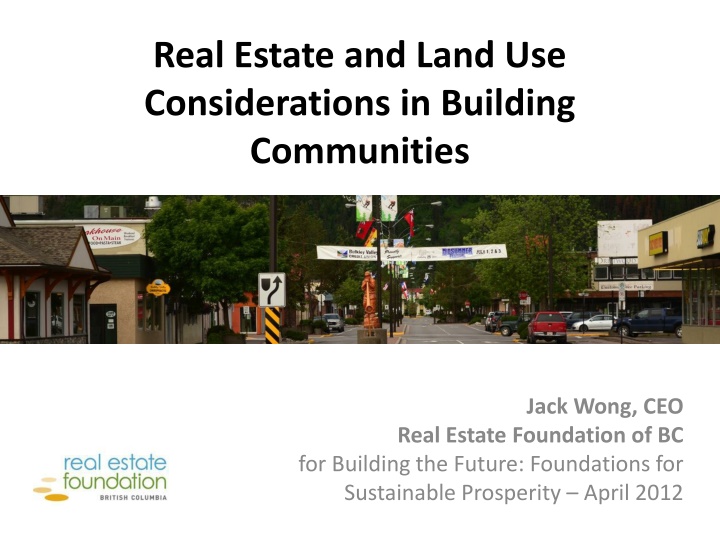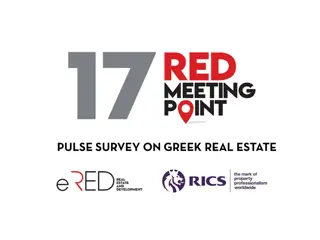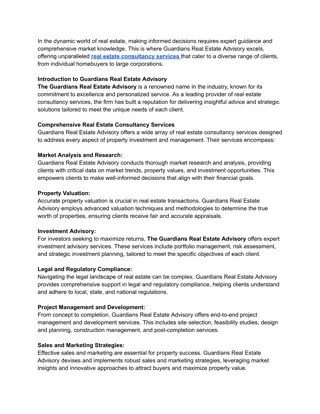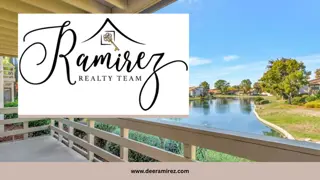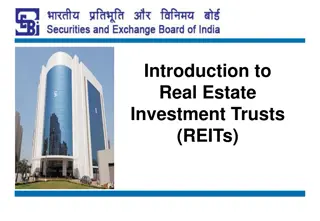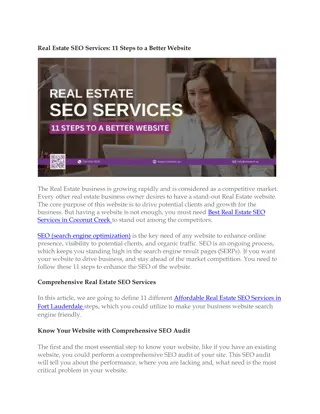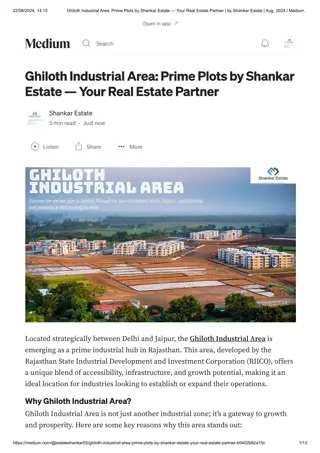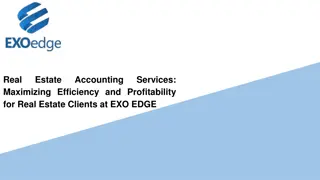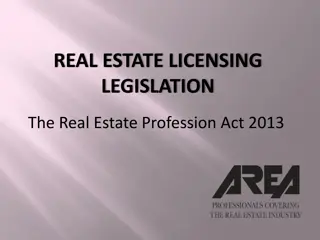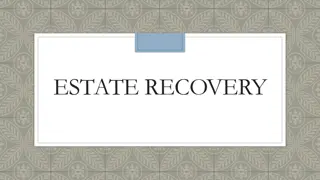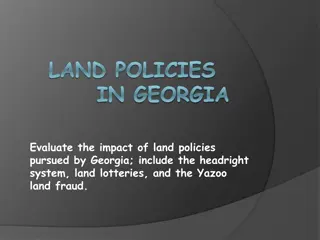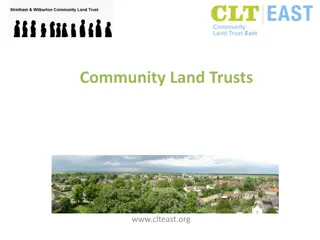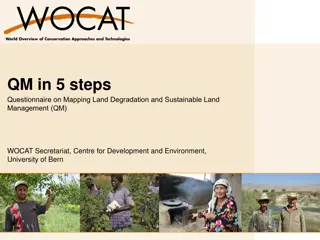Real Estate and Land Use Considerations in Building Sustainable Communities
Explore key factors such as social demographics, residential and industrial land use, infrastructure, public and commercial land use, and potential solutions in creating sustainable communities for the future. Learn about the importance of integrated planning, smart investments, and inclusive processes in community development.
Download Presentation

Please find below an Image/Link to download the presentation.
The content on the website is provided AS IS for your information and personal use only. It may not be sold, licensed, or shared on other websites without obtaining consent from the author.If you encounter any issues during the download, it is possible that the publisher has removed the file from their server.
You are allowed to download the files provided on this website for personal or commercial use, subject to the condition that they are used lawfully. All files are the property of their respective owners.
The content on the website is provided AS IS for your information and personal use only. It may not be sold, licensed, or shared on other websites without obtaining consent from the author.
E N D
Presentation Transcript
Real Estate and Land Use Considerations in Building Communities Jack Wong, CEO Real Estate Foundation of BC for Building the Future: Foundations for Sustainable Prosperity April 2012
BC Town Shops Houses Church School Doctor Fire, Police Town Hall Shop s H.S. Mill C/Centre Rink Businesses Park Mall Hospital College, etc.
Social & Demographic Factors Aging individuals, aging populations Baby booms Income diversity Cultural diversity Personal needs and preferences
Residential Land Use Factors Large houses on large lots Cost of servicing Time, money spent in the car Some community members not well served by this model
Infrastructure Factors Roads Sidewalks Water & waste Electricity Gas Telephone Internet
Industrial Land Use Factors Income and jobs but concerns about: Air quality Water quality Contaminated sites Noise Road impacts
Public Land Use Factors Separate locations for each purpose Lack of integration Schools Libraries Community and recreation centres What would serve community best?
Commercial Land Use Factors Historic downtowns vs. stores and services on the outskirts Walkable vs. car- oriented Close to existing infrastructure vs. extensions required
Solutions Long term thinking Working with natural processes (e.g. water) Integrated plans and service delivery; partnerships Inclusive planning processes Smart investments
Our Role Grants refbc.com/grants Pivotal connector BC-wide connections
Thank you! Jack Wong jack@refbc.com Toll free 1.866.912.6800 ext 104 Local 604.688.6800
